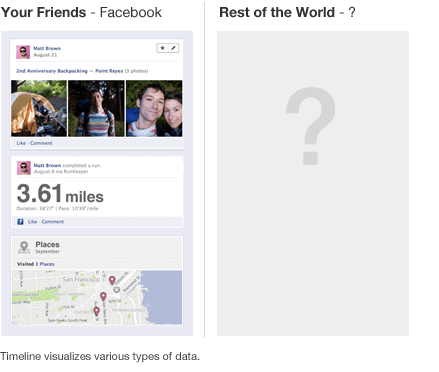Editor’s note: Facebook timelines are only the beginning. In this guest post, Jim Pitkow and Adrian Aoun sketch out what timelines could look like if they applied to everything. Auon is the CEO of stealth startup Wavii, which is working on a subset of the problems outlined below, and Pitkow is an advisor.
Last week Facebook made history. After collecting data about its users for years, Facebook turned to designer Nicholas Felton who decided it was time to take that data to the next level and visualize it — and the Timeline was born. But what about what’s going on with the rest of the world, and not just my friends… why doesn’t Facebook have timelines for that?
We’ll answer that in a minute, but first, why does it even matter? For the same reason you are reading this article, people like to stay up to date on a wide spectrum of information—social, topical, local, national, global—and we all hate to miss an important new story. With information so readily accessible we feel obligated to process more information than ever before. Facebook is pioneering the way we get information about our friends, but unfortunately, the tools for the rest of the world’s news haven’t yet caught up.
But we’re not telling you anything you don’t already know. The billion-dollar question is what to do about it? We believe that information consumption today is poised for an upheaval—the technology is evolving to match our behavior. So how will this transformation occur?
Battling Information Overload
 What was once a simple exercise of scanning one or two newspapers a day for interesting headlines and articles has escalated into repetitive scans throughout the day of multiple online news sources (Facebook feed, tweets, RSS feeds, online newspapers and blogs). And in many cases, different sources merely repeat the same story over and over again, making the apparent abundance of options misleading. So while more choice is often better, here it is simply overloading us.
What was once a simple exercise of scanning one or two newspapers a day for interesting headlines and articles has escalated into repetitive scans throughout the day of multiple online news sources (Facebook feed, tweets, RSS feeds, online newspapers and blogs). And in many cases, different sources merely repeat the same story over and over again, making the apparent abundance of options misleading. So while more choice is often better, here it is simply overloading us.
For example, when Kate Middleton married Prince William, you could read a thousand articles about it. Oddly enough, reading traditional print media is actually more efficient than this, because the story is mentioned only once per paper. In the current state of “overload”, you see the same article tweeted, shared on Facebook, pushed to your RSS feed, etc. And in many cases publishers bend to the perverse incentive of sensationalized headlines to differentiate their cookie-cutter content and drive more clicks. This makes it difficult to avoid bias and understand what’s actually happening, or even know if you’ve already read the story before clicking the headline: e.g., Kate Middleton gets coat of arms, It’s Official, Their Perfect Day.
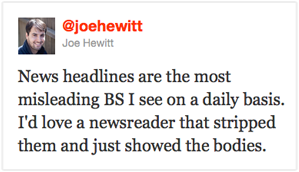 Studies show that people increasingly just scan headlines to keep up to date, and only occasionally read articles to get more depth. They prefer the atomization of content — smaller bites of useful information. If we decompose today’s headlines and articles to see “What’s Happening?” we get down to the building blocks — the events, details, opinions, interactions, analysis, context, and discussions that matter. This decomposition organizes everything for faster consumption and unparalleled visualizations and analysis. Thus, we believe that news will be more easily consumed via timelines arranged by actors and verbs. For example:
Studies show that people increasingly just scan headlines to keep up to date, and only occasionally read articles to get more depth. They prefer the atomization of content — smaller bites of useful information. If we decompose today’s headlines and articles to see “What’s Happening?” we get down to the building blocks — the events, details, opinions, interactions, analysis, context, and discussions that matter. This decomposition organizes everything for faster consumption and unparalleled visualizations and analysis. Thus, we believe that news will be more easily consumed via timelines arranged by actors and verbs. For example:

In this case, the headline was distilled down to just the event, categorizing what’s happening into the actors (i.e., Prince William, Kate Middleton) and the verbs (i.e., married), displayed with a universal icon.
But wait, there’s more… the event is merely an anchor. You can use it to kick-start social discussion, discover related events, and even organize the details (i.e., where was the wedding, who attended, etc.). Over time, all of this information leads to engaging timelines for just about anything you pay attention to in the world.
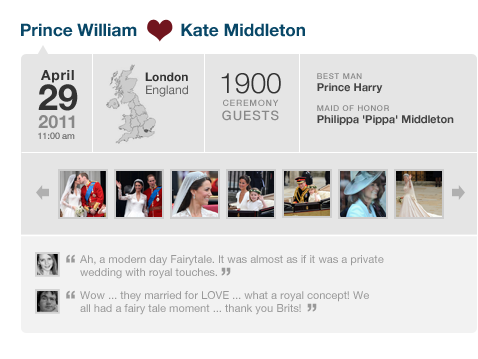
Implementing the Revolution
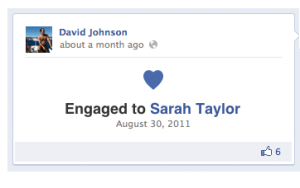 Timelines fundamentally change the nature of information consumption by taking it to next level of efficiency. Facebook is pioneering this revolution in our everyday lives by automatically structuring the events of “What’s Happening?” for many types of status updates.
Timelines fundamentally change the nature of information consumption by taking it to next level of efficiency. Facebook is pioneering this revolution in our everyday lives by automatically structuring the events of “What’s Happening?” for many types of status updates.
Wouldn’t it be great if the rest of the world’s events were just as easy to scan as the events pertaining to your friends?
So why can Facebook do this, and the rest of the world can’t? Simple — users. Every feed item on Facebook is generated by users, whether they realize it or not. Users definitely post their thoughts, locations, etc., but they don’t often write, “I broke up with my boyfriend.” Instead, Facebook elegantly reports this changed profile setting as an update on their feed. Facebook has this data for your friends, but they don’t have it for all the celebrities you care about, the movies, cities, sports teams, politicians, products, and companies.
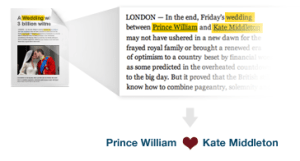 Many startups have tried in the past to get this data via natural language processing (NLP) or crowdsourcing. Whether it was because the technology wasn’t ready or the approaches weren’t pragmatic, nobody has been able to realize the vision to date. Fortunately, using big data machine learning approaches coupled with today’s news and discussion around the web, the technology is on the cusp of being realized.
Many startups have tried in the past to get this data via natural language processing (NLP) or crowdsourcing. Whether it was because the technology wasn’t ready or the approaches weren’t pragmatic, nobody has been able to realize the vision to date. Fortunately, using big data machine learning approaches coupled with today’s news and discussion around the web, the technology is on the cusp of being realized.
What does it all mean?
Facebook’s feed keeps you returning daily to find out what’s new, start up a conversation, give your opinion, and more. You would benefit just as much from this being applied to the rest of the web, so let’s do it.
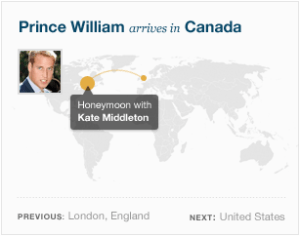 But what happens to everyone else when this revolution occurs? Do newspapers die tomorrow? Do services like Flipboard or Google News become irrelevant? Absolutely not. Users will always want variety of sources and interfaces to understand the world around them. Instead of focusing on aggregating and consuming individual articles, these algorithms will create a new personalization layer that weaves together the context and elements of each event. Being able to rapidly understand the world’s news and its context changes the game… aside from merely creating opportunities for existing players, new entrants will analyze the data for prediction, forecasting, and the like.
But what happens to everyone else when this revolution occurs? Do newspapers die tomorrow? Do services like Flipboard or Google News become irrelevant? Absolutely not. Users will always want variety of sources and interfaces to understand the world around them. Instead of focusing on aggregating and consuming individual articles, these algorithms will create a new personalization layer that weaves together the context and elements of each event. Being able to rapidly understand the world’s news and its context changes the game… aside from merely creating opportunities for existing players, new entrants will analyze the data for prediction, forecasting, and the like.
Facebook is reordering your timeline, but what about the world’s timelines?

